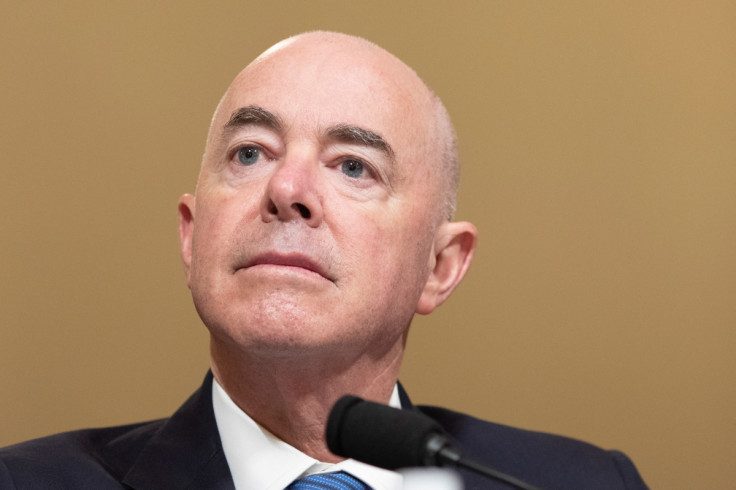
Impeachment proceedings against Department of Homeland Security Secretary Alejandro Mayorkas are set to begin on Wednesday, after the corresponding articles are sent to the Senate.
And even though a full-scale trial is not expected at the moment, with Democrats and some Republicans voicing their opposition against this given its slim chances of passing, there are still formal steps that will be taken to kick off the process.
Mayorkas has been formally accused of mishandling efforts to enforce immigration laws, especially when it comes to the implementation of a series of family reunification parole programs, which allowed some foreign nationals to wait in the U.S. for immigration visas.
What follows is a bit murkier, as the Senate can either dismiss the trial outright (as Democrats and Mayorkas are seeking) or require a committee to hear the case.
About a quarter of all Republican senators have sent Minority Leader Mitch McConnell a letter to force a full trial, saying that dismissing the charges without that process would be "an action rarely contemplated and never taken by the U.S. Senate."
But before getting to that, there are some steps that will certainly happen, the first one being an "engrossment ceremony" in the Rayburn Room, where House Speaker Mike Johnson is expected to sign the articles and probably give a short speech afterwards.
The articles of impeachment will then be walked across the Capitol building, led by the House clerk and the House Sergeant-at-arms and followed by the impeachment managers, who will act as prosecutors of the case should it come to that.
The House impeachment managers are: Homeland Security Committee Chairman Mark Green, Foreign Affairs Committee Chairman Michael McCaul, Reps. Andy Biggs, Ben Cline, Andrew Garbarino, Michael Guest, Harriet Hageman, Clay Higgins, Laurel Lee, August Pfluger and Marjorie Taylor Greene.
The Sergeant-at-arms will then announce the impeachment managers on the floor of the Senate, from where they will be escorted to the well of the Senate. There, the articles will be read aloud, with the reader then saying: "The managers request that the Senate take order for the trial, the managers now request leave to withdraw."
Senate President Pro Tempore Patty Murray will then say the Senate will notify the House when it's ready to proceed and the managers will take a procedural walk back to the house. Senate Majority Leader Chuck Schumer said senators will be sworn in as jurors on Thursday.

"After the House impeachment managers present the articles of impeachment to the Senate, Senators will be sworn in as jurors in the trial the next day," Schumer's office said in a statement.
After the oath, the Sergeant-at-arms will make the following proclamation: Hear ye, hear ye, hear ye, all persons are commanded to keep silent on pain of imprisonment while the House of Representatives is exhibiting to the Senate of the United States an article of impeachment against Alejandro Mayorkas, secretary of the Department of Homeland Security."
The senate will then begin to vote on the organizational rules of the proceedings, which could then vary depending on the approach decided.
The Associated Press has explained that, if Democrats can muster a simple majority (that is 51 votes) "they can dismiss the trial outright or move to table the two articles (of impeachment) ending the House's effort and allowing the Senate to move on to other business."
To get to that number, all Democrats and the chamber's three independents would have to vote for the motion. They could also get Republicans to vote for it, but it's unclear whether they would join Democrats in that vote.
The outlet indicated that even if Democrats can't dismiss the issue right away, they can also "hold a vote to create a trial committee that would investigate the charges." Precedents show that party leaders can recommend six senators and a chairperson to run that committee, which would then craft a final report and send it to the senate.
A trial is the last potential path the impeachment could take. In that case "senators would be forced to sit in their seats for the duration, maybe weeks, while the House impeachment managers and lawyers representing Mayorkas make their cases," AP recalled.
The first article of impeachment against the Secretary claims he displayed a "willful and systemic refusal to comply with the law," and the second that he breached public trust by having "knowingly made false statements, and knowingly obstructed lawful oversight of the Department of Homeland Security."
The second article argues that Mayorkas knowingly made false statements to Congress by saying that the border was secure and that he obstructed oversight.
© 2025 Latin Times. All rights reserved. Do not reproduce without permission.




